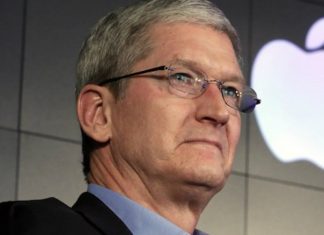 CNN is reporting that the council, which was created by an executive order by President Donald Trump in May, has a stated goal to “give advice to the president related to [tech] policy decisions.” The establishment of the council shouldn’t come as a surprise to the tech industry, as President Trump has several advisory councils set up for different industries.
CNN is reporting that the council, which was created by an executive order by President Donald Trump in May, has a stated goal to “give advice to the president related to [tech] policy decisions.” The establishment of the council shouldn’t come as a surprise to the tech industry, as President Trump has several advisory councils set up for different industries.
However, there is one key difference between the American Technology Council and other advisory councils: this council only counts government employees as members. This is an odd strategy for the White House; the private sector is home to some of the most revered advancements in technology, including machine learning, AI, and security software.
But while private company CEOs and entrepreneurs do not have a seat at the table, a White House Official has stated that “the council will continue to occasionally consult with the private sector on specific issue areas.”
Indeed, there has already been a tech summit held by the council. The summit, which happened in June, was attended by Amazon, Apple, and Microsoft CEOs, among others. The public still has very little information on the issues discussed at the summit, but there is widespread speculation that cybersecurity was the main topic.
Private tech company CEOs are now, however, being inundated with calls to refrain from advising the council; this comes after the events at Charlottesville and the President’s numerous statements made about the aftermath.
Rashad Robinson, the executive director of Color for Change, a racial equality group, has called on tech companies to disassociate from the American Technology Council. Robinson and his group are concerned that the inclusion of private sector companies and CEOs on the council could signal an end to privacy for ordinary citizens.
Because technology is the most used way for extremist groups to spread their bigotry and ideology, there is widespread concern that the White House may force tech companies to give up private information on their users. While this would stem the flow of hateful interactions, it could also lead to innocent individuals having their information turned over to the government, which could, in turn, target them for not adhering to the White House’s positions on a variety of issues.
So far, only one tech company, Akamai, has confirmed they will work with the tech council. Other companies, such as Apple and Intel, have spoken out against racism and bigotry but have yet to release a statement to the public about their ongoing involvement with the council.











